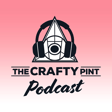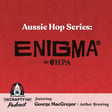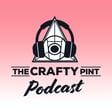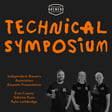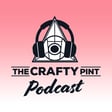
Making A Positive Impact With Beer
What does it mean to be a sustainable business or to brew in a sustainable manner? Can beer really do good, or are such claims just there to make marketing departments feel better about themselves? And, if so, how can they have a positive impact on the world around them, from their local community to the drinkers who buy their beers?
Such questions – and helping people find the right answers to them – have occupied James Perrin throughout his career in beer. It's one that started with Lion in New Zealand, brought him to Stone & Wood in the midst of their rapid growth, and continues to this day in many ways.
He's still involved in a Northern Rivers brewery too, albeit a rather smaller one. He left Stone & Wood after the sale to Lion / Kirin, and these days is part of the team running Spangled Drongo, a brewery which makes a donation from every beer sold to help protect the natural habitat around them.
He also works with businesses looking to be better global citizens in and outside beer, both in Australia and overseas, and has helped some – most recently Jervis Bay Brewing Co – gain B Corp status.
James is a wealth of knowledge on all things sustainability and has developed a model of six ways in which businesses can look to have a positive impact. He joined us on the show to explain his approach, discuss various programs and certifications in this space, and to highlight examples from the beer world that have impressed him.
He talks passionately about the importance of authenticity in making connections with consumers, and is a firm believer that indie beer businesses occupy a role within communities through which they can make changes for the better and inspire others to follow suit.
The chat with James starts at 16:17
Prior to that we welcomed another guest, who joined James for the preamble. With Will making his way back to Australia from Bali, Benedict Kennedy-Cox stepped up to the oche.
Benny has been writing for The Crafty Pint for a few years now, often combining beer with another passion of his: travel. He was in Melbourne so dropped into the studio to discuss the week's news, share some of his favourite experiences on the road, including getting abused by a waiter in Köln, and offer insight into the sustainably-minded businesses he's written about for us.
There also a heads-up for our forthcoming lager-centric event at The Wheaty.
Relevant links:
Going Green: Sustainable Brewing: https://craftypint.com/news/1767/going-green-sustainable-brewing
Spangled Drongo Brewing: https://craftypint.com/brewery/865/spangled-drongo-brewery
Jervis Bay Secure B Corp Status: https://craftypint.com/news/3588/better-every-day-jervis-bay-become-a-b-corp
James Perrin's website: https://www.jamesperrin.com.au/
Ryefield Hops' Certifiably Sustainable Growth: https://craftypint.com/news/3376/ryefield-hops-certifiably-sustainable-growth
Frogs Hollow's Off-Grid Brewery: https://craftypint.com/news/3590/going-green-frogs-hollows-off-grid-brewery
Mitta Mitta Brewing: https://craftypint.com/brewery/398/mitta-mitta-brewing-co
Ten Lessons From Ten Years: Wolf of the Willows: https://craftypint.com/news/3614/ten-lessons-from-ten-years-wolf-of-the-willows
Planned vs Rogue: https://www.youtube.com/@PlannedvsRogue
Upcoming lager event at The Wheaty: https://craftypint.com/event/13508/exploring-the-ever-larger-world-of-lager
Sun Tap Decals: https://www.suntapdecals.com.au/
To find out more about supporting the show or otherwise partnering with The Crafty Pint, contact craig@craftypint.com.
